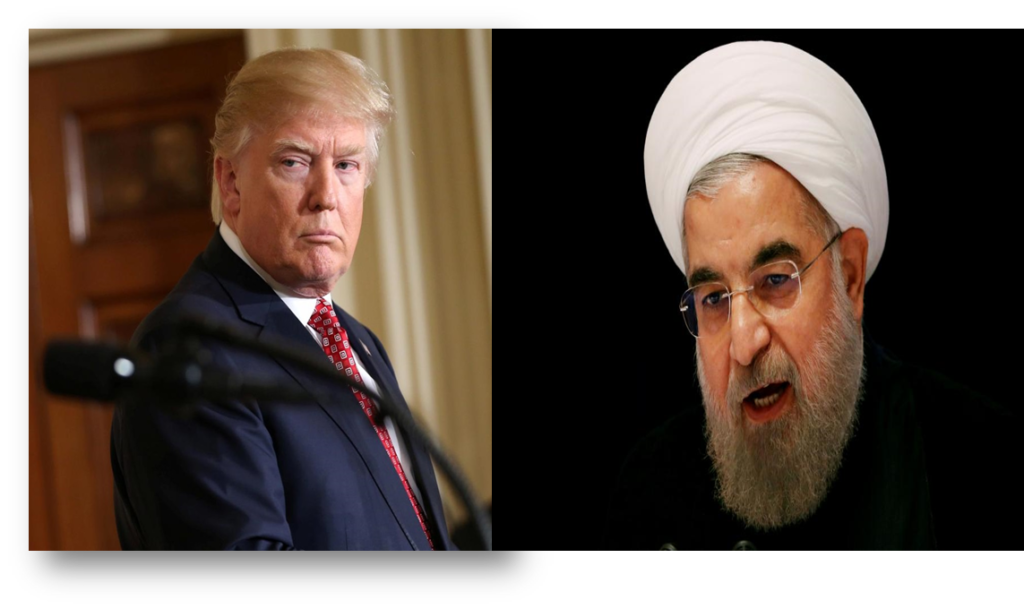London- A number of options is lined up at US President Donald Trump’s desk on containing the ever-expanding threat Iran poses against regional and international security. Counter-actively, Tehran spares no time in preparing responsive scenarios to the anticipated change in Washington policy.
On Wednesday, Iranian President Hassan Rouhani kicked of the national cabinet meeting by issuing an explicit warning on the widespread concerns of the Revolutionary Guard being blacklisted and the nuclear deal scrapped.
The US president is expected to “decertify” Iran’s nuclear deal with global powers this week and add its Revolutionary Guards military force to Washington’s blacklist under a strategy to increase pressure on Tehran.
Foreign Minister Mohamed Javad Zarif discussed behind parliament’s closed doors multiple possible scenarios to confront any drastic change in US policies towards the nuclear deal, and White House’s attempt to restrain Revolutionary Guard’s regional interference.
Tehran’s confusion and political state of top alertness comes at a time when several international parties have jumped into consultations, in an attempt to persuade Trump to uphold the Vienna nuclear agreement, 21 months after it going into force.
Rouhani, despite being cited to have controversy with the country’s conservatives, gave a full-throated defense of his one-time rivals in the Revolutionary Guards, as the country’s pragmatist and hardline factions rallied together in the face of threats from Trump.
“If someone backs out of an international deal, he’s the loser, not the one who doesn’t,” Rouhani said during the cabinet meeting.
He said US action against the Guards would be a “mistake beyond mistakes”.
“Sticking to a deal shows the dignity of a state and to what extent its government is trustworthy,” he added.
“They think that the Guards are a military entity. The Revolutionary Guards are not a military entity. They’re in the heart of the people. The Revolutionary Guards, in all the days of danger, have defended our national interests,” he said.
“We’re one society. We’re Iran. There are no differences between differentfactions in confronting the plots of our enemies,” he added.
During an unprecedentedly bitter campaign, he repeatedly spoke out in public against the political influence of the Guards, accusing them of backing his hardline opponent to defend their economic interests.
In recent days, however, the threat of new action from Washington has prompted a public display of unity from the rival factions among Iran’s rulers.
“Today, the president of America has created conditions where Iran is more united than ever. Today, those who oppose the nuclear deal and those who support it are side by side. We all have one voice,” Rouhani said.
Trump is expected to unveil a broad strategy on confronting Iran this week, likely on Friday. There was always the chance he could still have a last-minute change of heart and certify Iran’s compliance with the 2015 accord, which he has called an “embarrassment” and the “worst deal ever negotiated.”
